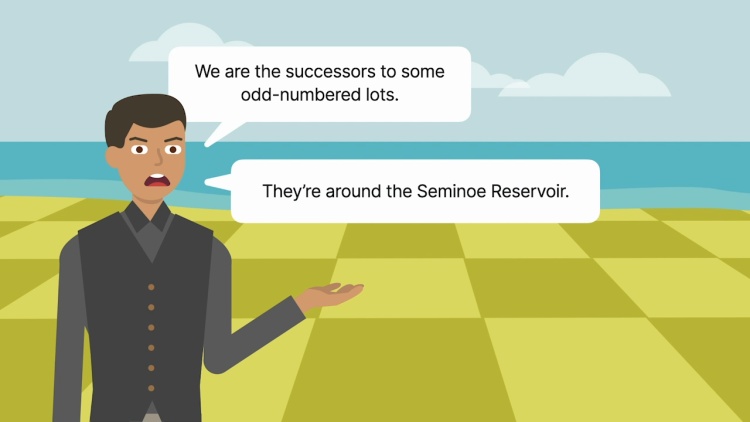Leo Sheep Co. v. United States
United States Supreme Court
440 U.S. 668 (1979)
- Written by Melanie Moultry, JD
Facts
The Union Pacific Railroad (the railroad) was granted land by the United States (defendant) in exchange for completing sections of a transcontinental railroad. Pursuant to the Union Pacific Act of 1862, the railroad was granted alternating sections of land within 10 miles of either side of the railroad tracks in Carbon County, Wyoming. The Leo Sheep Company (Leo) (plaintiff) and the Palm Livestock Company (Palm) (plaintiff) became successors in fee to specific sections of land that lay to the east and south of the Seminoe Reservoir. The reservoir was open to the public for fishing and hunting but could only be accessed from the south and east by traveling over these privately owned parcels of land. The federal government attempted to negotiate access through these parcels of land but could not reach an agreement. Subsequently, the federal government cleared a dirt road through the land and erected signs inviting the public to use the road to access the reservoir. Leo and Palm sued the federal government to quiet title as to those parcels of land. The trial court granted summary judgment in favor of Leo and Palm. The federal government appealed to the United States Court of Appeals for the Tenth Circuit, which reversed. Leo and Palm petitioned the United States Supreme Court for review.
Rule of Law
Issue
Holding and Reasoning (Rehnquist, J.)
What to do next…
Here's why 899,000 law students have relied on our case briefs:
- Written by law professors and practitioners, not other law students. 47,000 briefs, keyed to 994 casebooks. Top-notch customer support.
- The right amount of information, includes the facts, issues, rule of law, holding and reasoning, and any concurrences and dissents.
- Access in your classes, works on your mobile and tablet. Massive library of related video lessons and high quality multiple-choice questions.
- Easy to use, uniform format for every case brief. Written in plain English, not in legalese. Our briefs summarize and simplify; they don’t just repeat the court’s language.





